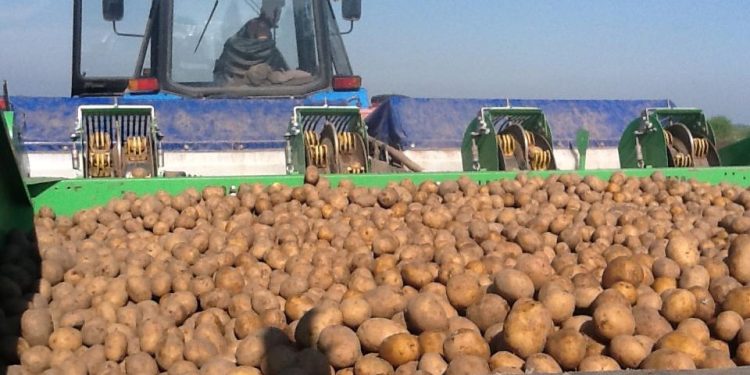#Agriculture #PotatoCultivation #NorthwestRussia #AgriculturalInnovation #HarvestTrends #LaborShortages #SustainableFarming #NovgorodRegion #AgriculturalResilience
The Novgorod region continues to be a beacon of success in the agricultural landscape, particularly in the realm of potato cultivation. In 2023, the region showcased remarkable achievements in its harvest, with key insights provided by Deputy Minister Vladimir Tatarenko in a recent live broadcast.
Harvest Highlights: Comparing to the previous year, the area dedicated to potato cultivation saw an impressive 11% growth, now spanning 4800 hectares. The region successfully harvested 144.5 thousand tons, surpassing the previous year’s yield by 12%. Notably, Novgorod remains a leader in the Northwest for potato production, consistently outperforming other regions.
Vegetable Dynamics: While the potato thrived, the area dedicated to vegetables decreased to 1700 hectares, yielding 74.8 thousand tons. Despite the reduction in area, the yield per hectare increased by 2% compared to the previous year.
Challenges in Abundance: Despite the agricultural success, a new challenge emerged with the abundance of the potato harvest. Farmers faced the predicament of low prices due to the surplus. Tatarenko attributed this issue to the lack of storage facilities among some farmers, leading to a rush to dispose of excess produce.
Agricultural Resilience: Tatarenko reassured that, despite sanctions and pricing challenges, the agricultural sector in Novgorod continues to thrive. Investments in equipment and technology remain constant, with a diverse range of purchases from countries such as Belarus, China, and Finland. In 2023, the region acquired 138 units of new machinery, including 30 tractors.
Addressing Labor Shortages: Weather conditions also presented challenges, causing a noticeable shortage of labor. To combat this, the Ministry of Agriculture collaborated with educational institutions, bringing in over 150 students from agricultural and technical colleges. Farmers facilitated their stay, providing accommodation and salaries, marking a collaborative effort to address the labor deficit.
Future Plans and Innovations: Looking ahead, Novgorod has ambitious plans for the coming year, focusing on expanding agricultural lands. Tatarenko highlighted ongoing efforts to support agro-startups through grant competitions, inviting new entrants to contribute to the region’s agricultural growth.
Educational Support: For those lacking experience, Tatarenko emphasized the accessibility of educational institutions for retraining and skill development in agriculture.
Novgorod’s dominance in potato cultivation reflects not only agricultural prowess but also resilience in the face of challenges. The collaborative approach between the government, farmers, and educational institutions serves as a model for sustainable agricultural development. As Novgorod plans for the future, its commitment to innovation and knowledge-sharing remains at the forefront.







